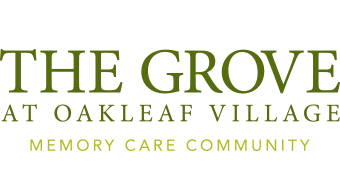Foods for Dementia: Finding Memory Care with a Brain-Healthy Cuisine
Making sure Mom is hydrated…ensuring Dad isn’t overwhelmed…helping your spouse deal with sundowning…
When it comes to dementia, providing proper care is more than ensuring your loved one takes a pill. In fact, one important nonpharmacological intervention is proper nutrition…backed by beneficial foods for dementia.
Given the important link between diet and health, it’s important to find a memory care community with cognitively healthy cuisine options for your loved one.
At The Grove, brain-healthy foods are near and dear to our mission. For every meal, our goal is to have one brain-boosting option on menu.
In this article, we’re covering some foods for dementia that we’ve featured in our menu—giving you an idea of what you can expect for Mom or Dad’s mealtime.
Let’s dive in…
#1. Foods for Dementia: Eggs
Do some cursory research, and you’ll find eggs are a source of choline for your Mom or Dad.
What’s the connection between choline and brain health?
As one scholarly resource notes…
“choline [seems] to have a role in optimizing brain energy metabolism, containing oxidative stress and inflammation, maintaining deoxyribonucleic acid stability and regulation of gene expression, modulating neurotransmission, and preventing vascular damage.”
That’s a big chunk of information, but here’s the bottom line—choline appears to support healthy brain function.
And since eggs contain this important compound, that makes them a tasty food for dementia.
At The Grove, our breakfast menu has featured an egg sandwich with spinach and tomatoes, and an apple on the side—a great way to start your loved one’s day
#2. Foods for Dementia: Avocados
Research indicates there’s link between lutein and brain health. According to this article, “greater lutein status is positively associated with better cognitive function in older adults.”
If you’re wondering how your loved one can enjoy a natural source of lutein, check out this research. This article states that study participants who ate avocados experienced the following results:
“At six months, AV [avocado] increased serum lutein levels by 25% from baseline (p = 0.001).”
Since avocados join the group of brain-healthy foods for dementia, you might be happy to know that The Grove has featured Shrimp & Avocado Citrus Salad on its menu.
In addition to spicy shrimp and tangy oranges, this dish contains delicious creamy avocado.
#3. Foods for Dementia: Lentils
Scholars writing in the Annals of the New York Academy of the Sciences point out, “The brain represents only 2% of body mass, but it uses 20% of the glucose.”
They also write that while “[t]hiamine‐dependent enzymes are critical components of glucose metabolism,” Alzheimer’s patients have a ⅓ reduction of thiamine in plasma.
See how we’ve incorporated a natural source of thiamine into residents’ diets when you check out this Lentil Soup. Lentils are a known source of thiamine (vitamin B-1), and we’ve served this soup at The Grove…along with warm cornbread.
Going Beyond a Brain-Healthy Cuisine
Finding a memory care community in Ohio that provides foods for dementia is important.
But your loved one’s well-being involves more than what’s on the menu…it also includes the atmosphere during mealtime.
When you visit The Grove, you’ll find we’ve designed mealtime to replicate the feeling of home.
At The Grove, we’ve ditched the big dining room model. Instead, in each neighborhood, we provide a central table for Mom or Dad to gather around. This table is close to an open kitchen that allows tasty aromas to float through the air.
It’s an experience that can bring back pleasant memories and signal to your loved one that it’s time to eat.
Discover a community that backs its brain-healthy cuisine with a homelike eating environment.
Schedule a visit to The Grove Toledo in Toledo, Ohio. Or plan to swing by The Grove Columbus—which will open soon in the north Columbus area.








